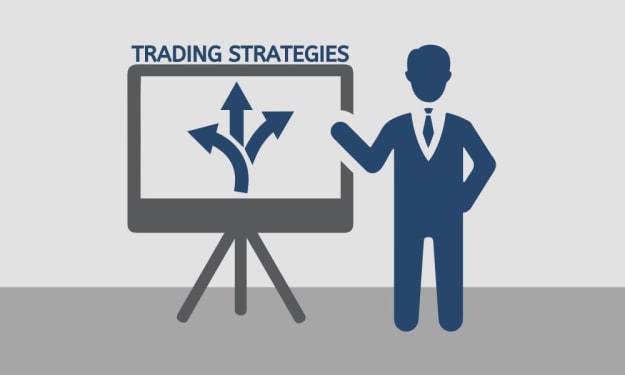Analysis & Specialized Trading Psychology
"Trading psychology" refers to emotions and actions that drive market trading.

The term "trading psychology" refers to a group of emotions and behaviors that are frequently the impetuses behind market trading. These emotions and behaviors can be broken down into several distinct categories. Because of the way that businesspeople have traditionally been portrayed in the media, the majority of close-to-home trading is typically blamed on either greed or fear.
Covetousness is a strong desire for money, so strong that it sometimes makes it hard to see things clearly and make good decisions. So, this description of the "hunger-driven financial backer" or "silly trading" assumes that traders' feelings of eagerness can lead them to act in a variety of bad ways. This could mean making high-risk trades, buying parts of an untested company or technology because it is getting more expensive quickly, or buying shares without researching the basic investment.
Also, covetousness could cause financial backers to stay in good deals longer than they should in order to get more benefits or to take on huge speculative positions. Voracity is most obvious at the end of buyer markets, when speculation gets out of hand and investors pull out all the stops.
On the other hand, fear makes traders close out positions quickly or avoid taking risks because they are afraid of huge bad things happening. Fear is clear during bear markets, and a strong desire to get out of the market can make traders and investors do things that aren't logical. A lot of the time, fear turns into alarm, and alarm selling usually leads to big drops in the market.
A trader might get into a trade that he or she would have passed up before because the stock was moving too quickly. This goes against the rules of trading and often leads to direct losses because security prices are falling from their highs.
Analysis by Experts
Trading psychology is often important for specialized experts who use plans to guide their exchange decisions. Security outlining can give a lot of information about how a security has changed over time. Patterns for trading opportunities can be found with the help of technical analysis and diagramming, but it also takes an understanding of and an instinct for how markets move, which comes from a trader's trading psychology.
In specialized diagramming, there are times when a trader should rely on the understanding of the outline as well as their own knowledge of the security they're following and their gut feeling about what larger parts of the market mean. Traders who are disciplined, sure of themselves, and pay close attention to how everything affects the value of a security have a good trading psychology that usually helps them make progress.
Take care of money
Part of trading psychology is figuring out why people make bad decisions on the lookout or in other ways that cost them money. Conduct finance is a subfield of social financial aspects that looks at the mental effects and predispositions that affect how financial backers and experts act with money. Impacts and predispositions can also be used to explain a wide range of market irregularities, especially in the stock market, where prices can go up or down very quickly.
Social money generally envelops the ideas of:
1.Mental bookkeeping: Mental bookkeeping alludes to the inclination for individuals to designate funds for clear causes.
2.Group conduct: Herd conduct expresses that individuals will generally imitate the monetary ways of behaving of majority of the mob. Crowding is famous in the securities exchange as the reason behind dramatic revitalizes and sell-offs.
3.Profound hole: The near to home hole alludes to dynamic in view of outrageous sensations or profound strains like tension, wrath, dread, or energy. Feelings are in many cases a fundamental factor behind why folks proceed with ridiculous levelheaded actions.
4.Mooring: Anchoring references to attaching a spending level to a certain reference. Models might comprise burning through reliably founded on a tight spending plan level or justifying expenditure in view of numerous fulfillment utilities.
5.Self-attribution: Self-attribution relates to a propensity to go with decisions in light of pomposity in one's own insight or knowledge. Self-attribution often arises from a characteristic ability in a certain place. Inside this class, people will generally rank their insight higher than others, in any instance, when it equitably misses the mark.





Comments
There are no comments for this story
Be the first to respond and start the conversation.